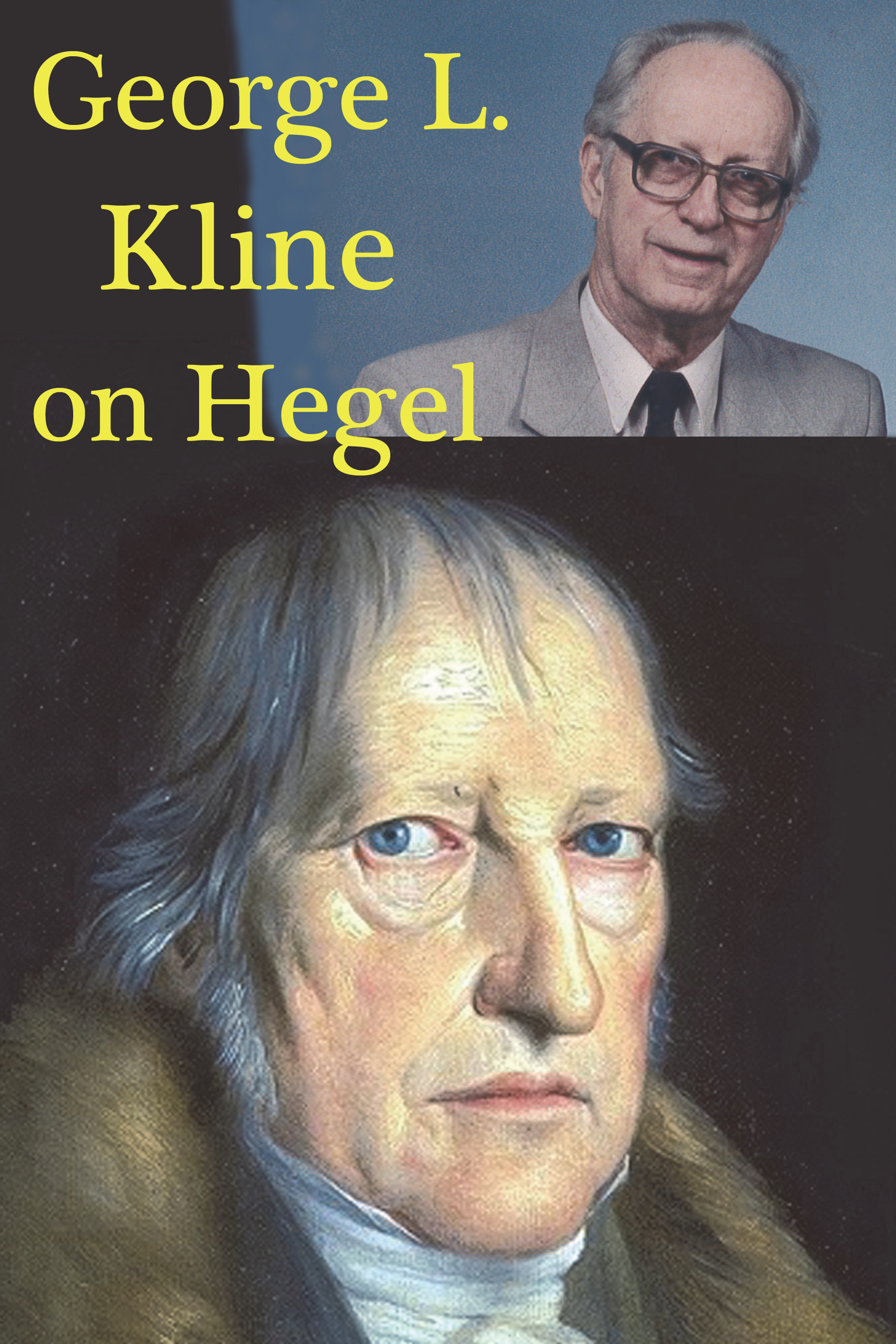
ISBN 978-1-62130-734-1 (Kindle e-book), $9.99
ISBN 978-1-62130-735-8 (PDF e-book), $9.95
ISBN 978-1-62130-736-5 (EPUB e-book), $9.99
|
George L. Kline on Hegel
Fifteen important papers about Hegel covering forty-five years of work
by one of America's most prominent Hegel scholars:
1. "What Marx Could ... and Should Have Learned from Hegel" (1974)
2. "Hegel and the Marxist-Leninist Critique of Religion" and "Reply
to Commentators" (1970)
3. "Present, Past, and Future in the Writings of Alexander Herzen" (1990)
4. "The Use and Abuse of Hegel by Nietzsche and Marx" (1989)
5. "Hegel and Solovyov" (1974)
6. "The Existentialist Rediscovery of Hegel and Marx" (1971)
7. "Concept and Concrescence: An Essay in Hegelian-Whiteheadian
Ontology" (1986)
8. "Some Recent Reinterpretations of Hegel's Philosophy" (1964)
9. "Gustav G. Shpet as Interpreter of Hegel" (1999)
10. "The Hegelian Roots of S.L. Frank's Ethics and Social Philosophy" (1994)
11. "Lukács's Use and Abuse of Hegel and Marx" (1987)
12. "Pierre Macherey's Hegel ou Spinoza" (1990)
13. "The Dialectic of Action and Passion in Hegel's Phenomenology
of Spirit" (1970)
14. "Life as Ontological Category: A Whiteheadian Note on Hegel" (1980)
15. "Shpet as Translator of Hegel's Phänomenologie des Geistes" (2009)
George Louis Kline was born in Galesburg, Illinois, on March 3, 1921.
World War II interrupted his studies at Boston University, where he had
matriculated in 1938. After the war, he continued his education at Columbia
University, earning his A.B. in 1947, his M.A. in 1948, and his Ph.D. in
1950 with a dissertation called "Spinoza in Soviet Philosophy." He taught
at the University of Chicago and at Columbia before joining the Bryn
Mawr College faculty in 1959. He was tenured in 1960, was named the
Milton C. Nahm Professor of Philosophy in 1981, and retired in 1991.
He was president of the Hegel Society of America from 1984 to 1986
and of the Metaphysical Society of America from 1985 to 1986. Who's
Who in America listed him first in 1970 and many times annually
thereafter. He died in Anderson, South Carolina, on October 21, 2014.
Kline was a recognized expert not only in Russian philosophy, Spinoza,
and Hegel, but also in Whitehead, Vico, Marx, Sartre, Kierkegaard, ethics,
the philosophy of religion, Soviet ideology, and Russian literature. He was
fluent in French, German, Russian, Spanish, and Italian, and competent in
Latin, Greek, Polish, and Portuguese. He was particularly interested in the
relation of the precision - or imprecision - of technical terms in these
languages to the content of thought and was keen to pick out imprecisions,
ambiguities, or nuances that would undermine, weaken, or impair systematic,
rigorous, or coherent thought. He translated much of the poetry of Joseph
Brodsky and contributed in no small way to Brodsky being awarded the
Nobel Prize in Literature in 1987.
"Kline can be viewed as having devoted his own scholarship to recovering,
recollecting, celebrating and redeeming the worthy contributions of many ...
who (in Kline's estimation) faithfully sought to devote their own lives to the
increase of accurate and valuable philosophical understanding as a central
component of our human cultural patrimony. It was this same underlying
and unwavering commitment to truth and to its free expression that led
Kline to discover, translate, and introduce the poetry of the dissident,
Joseph Brodsky, to the wider world. The essays in this wonderful collection
together offer tribute to this noble, generous, redemptive and redeeming
spirit of their author himself, a spirit of graceful generosity that pervades
his scholarship, and has redounded to the enduring benefit of those of us
privileged to know the author himself as teacher, colleague, and friend."
- George R. Lucas Jr., in The Owl of Minerva 48, 1-2 (2016-2017): 169
|






|

